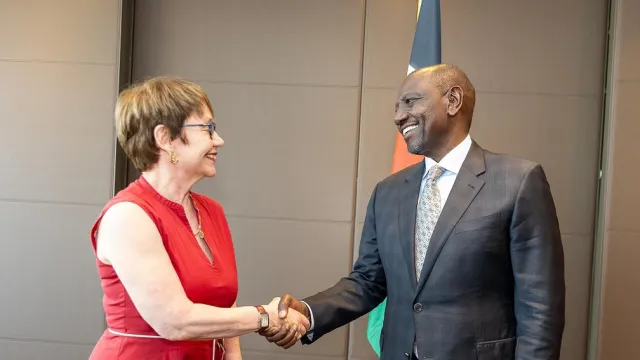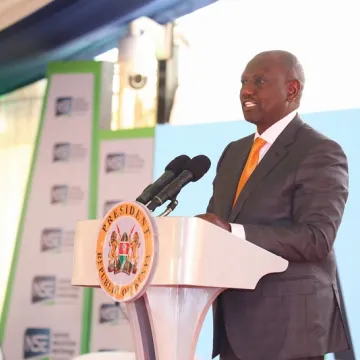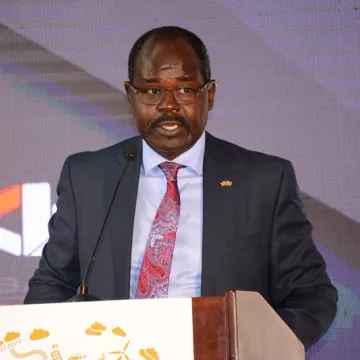Kenya gets lender EBRD’s Africa HQ in boost to MSMEs

President William Ruto with European Bank for Reconstruction and Development President Odile Renaud-Basso, Seville, Spain.
Kenya is set to become the home of the African head office of the European Bank for Reconstruction and Development (EBRD), a move that will strengthen support for Micro, Small and Medium Enterprises (MSMEs) in the region and promote Public-Private Partnerships as key drivers of economic growth.
President William Ruto announced this development following talks with EBRD President Odile Renaud-Basso on the sidelines of the Fourth International Conference on Financing for Development held in Seville, Spain.
The lender’s presence in Nairobi also signals deepening ties between the bank and East Africa’s largest economy.
"We value our growing partnership with the European Bank for Reconstruction and Development and welcome the bank's decision to establish an African office in Nairobi. "This is a strategic move that will enhance support for micro, small and medium enterprises, and promote public-private partnerships as key drivers of economic growth," said the President.
Ruto and Renaud-Basso agreed on an engagement strategy, including support for climate financing, the promotion of green investments, and the organisation of an investor conference in Nairobi later this year.
“The decision by EBRD to open its African office in Nairobi is a strong endorsement of Kenya’s economic potential and reform agenda,” Ruto said, adding: “This partnership will go a long way in expanding access to climate finance, promoting green investment, and creating jobs through support for MSMEs,” he added.
The ratification process for the office’s establishment is currently before the Parliament.
From 2025 to 2030, the bank plans to invest in up to six sub-Saharan African countries. EBRD, which has 75 national shareholders alongside the European Union and the European Investment Bank, focuses on strengthening private-sector growth, sustainable development, and long-term economic transformation.
The lender was established in 1991 to support the transition of former Eastern bloc countries to market-oriented economies after the fall of the Soviet Union. It provides financial investments, policy advice, and technical assistance primarily through loans, equity investments, and guarantees.
Meanwhile, Central Bank of Kenya (CBK) has announced the official closure and cancellation of the authority granted to Bank Al-Habib Ltd (BAHL) of Pakistan to operate BAHL in Kenya.
In the statement shared on Monday, the regulator revealed that the development had been informed by the decision of the bank to rationalise its foreign operations and hence the exit from the Kenyan market.
"The Central Bank of Kenya (CBK) announces the cancellation of the authority granted to Bank Al-Habib Ltd (BAHL) of Pakistan to operate BAHL," CBK stated.
Although BAHL will no longer have a direct presence in Kenya, the bank can maintain an indirect footprint through intermediary banking relationships and strategic partnerships in areas such as trade finance and corporate banking.





